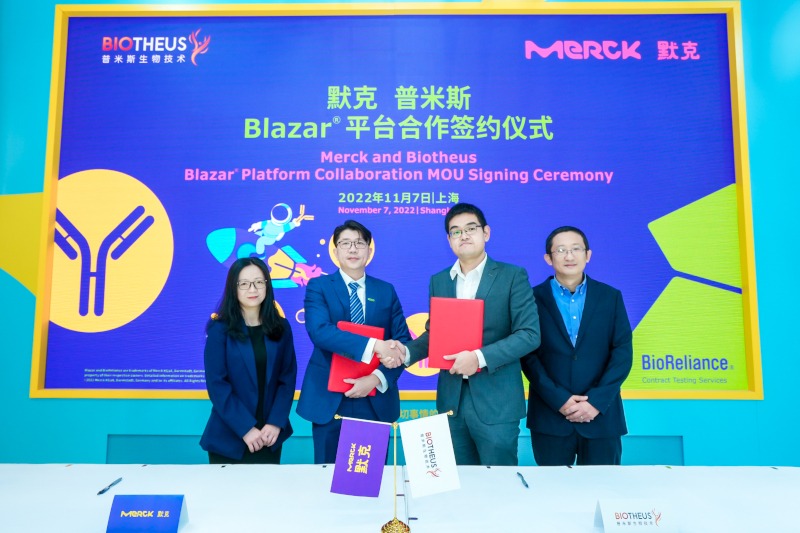
- Merck to offer its first-to-market Blazar ® Rodent Panel for virus testing
- Reduces biosafety turnaround time by up to 80%
- Reduces animal testing through molecular-based technology
Shanghai, China – Merck, a leading science and technology company, today announced a collaboration with Biotheus, a China-based biotech company focused on developing treatments for cancer and autoimmune diseases. Utilizing Merck’s Blazar® Rodent Panel, Biotheus’ turn-around-time (TAT) of its cell line characterization reduced from around 60 days to 14 days.
“The pressure to shorten delivery times and reduce costs for biologics are driving an evolution in the biomanufacturing space,” said Marc Jaffré, Managing Director, Life Science business sector, Merck China. “Merck has a 75-year history of biosafety testing experience. With this state-of-the-art platform, Merck’s Blazar® Rodent Panel can support our biopharmaceutical clients in China to accelerate their scientific breakthroughs and produce safe, life-saving therapies faster.”
“The Blazar® Rodent Panel from Merck is one of the few technologies available on the market that will empower us in expediting approvals for IND and BLA in China and beyond,” said Xu Yingda, Vice President of Chemical Manufacturing and Control, Biotheus Inc. “We look forward to our continued collaboration with Merck, a global leader in biosafety testing and regulatory services, in the development of novel drugs to treat cancer and inflammatory disease, and expand our clinical trial activities worldwide.”
The award-winning Blazar® Rodent Panel from Merck can detect a much broader range of adventitious viruses compared to traditional Polymerase Chain Reaction methods as it targets conserved regions within virus families. The Blazar® Rodent Panel allows the biopharma industry to move away from using traditional animal experiments to detect rodent origin virus in the cell banks used in the production of the biologics. Introduced in Q3 2020, it also reduces the use of animals in accordance with the 4Rs principles – replacement, reduction, refinement and responsibility.



